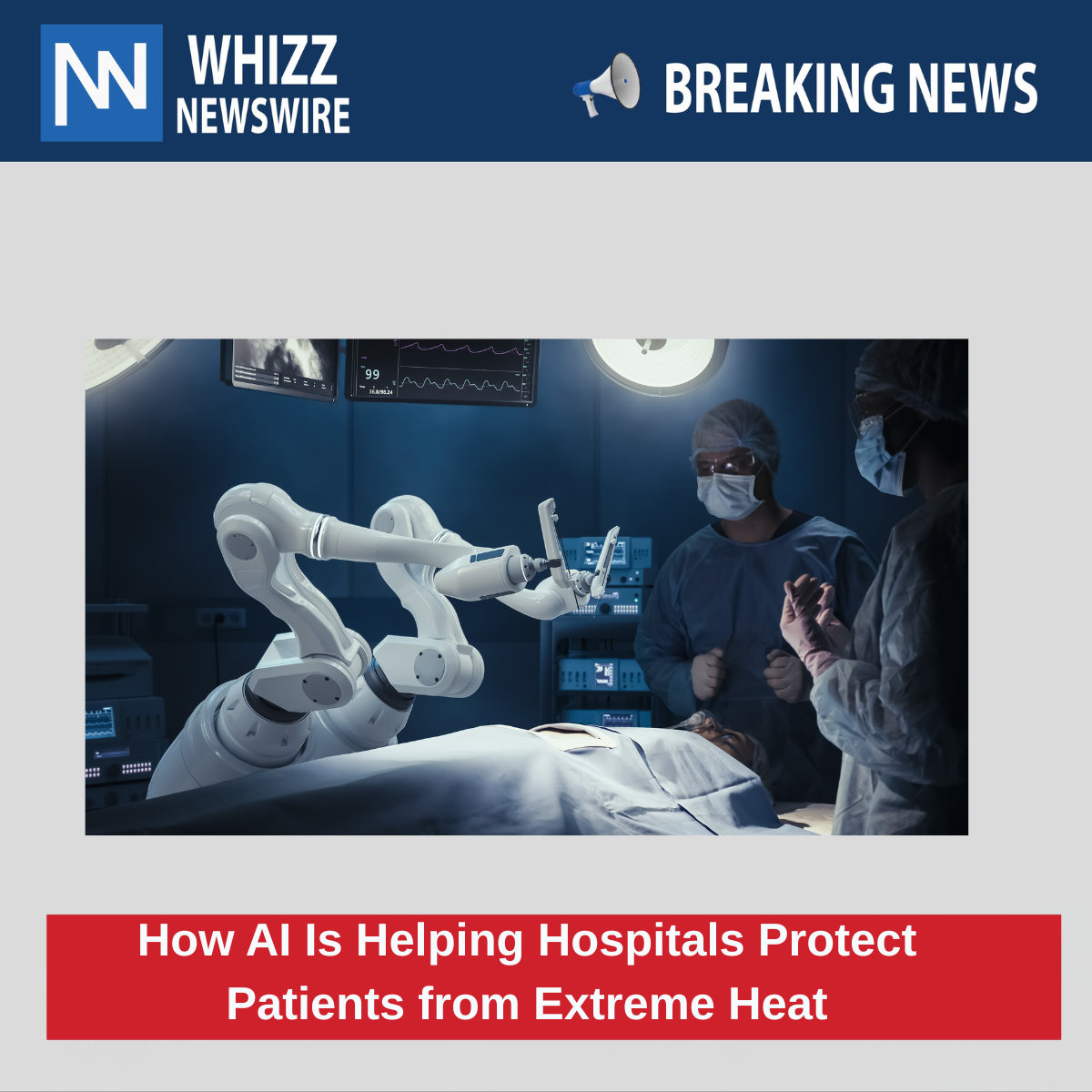Extreme Heat and Health: A Growing Crisis
Each summer, hospitals across the U.S. see a sharp rise in patients suffering from heat-related illnesses. Dehydration, kidney failure, heart problems, and heat exhaustion send thousands to emergency rooms. In fact, extreme heat kills more people in the U.S. than any other weather event—claiming an estimated 2,300 lives annually.
With climate change making heat waves longer and more intense, the health risks are only expected to increase. One study estimates that emergency rooms could see up to 235,000 extra visits every summer due to rising temperatures, costing the healthcare system up to $1 billion a year.
That’s why Mass General Brigham (MGB), one of the largest healthcare systems in Massachusetts, is turning to artificial intelligence (AI) for help.
How AI Could Help Save Lives
Mass General Brigham, which serves around 2.5 million patients, is working on an AI-powered alert system designed to warn people at risk before heat waves strike. The idea is simple but powerful: use AI to scan through electronic health records and identify individuals who may be more vulnerable to high temperatures.
People with heart issues, kidney disease, or who are on certain medications can be especially sensitive to heat. The AI tool will identify these individuals and send them personalized alerts when a heat wave is approaching. These alerts will also include safety tips like staying hydrated, avoiding outdoor activities, and finding a place with air conditioning.
According to Dr. Paul Biddinger, MGB’s chief preparedness and continuity officer, the system is about more than just weather updates. “We think patients will pay more attention if it’s their doctor or hospital saying, ‘You’re at risk, and here’s what to do,’ rather than a generic weather report,” he explained.
Keeping Health Information Safe
Patient privacy is a top priority. The AI system will be designed with strong security measures to protect sensitive health information. Only authorized healthcare professionals will be able to access personal data, and the alerts will be sent in a secure, confidential way.
In addition, the system may include a chatbot feature, so patients can ask questions or get help finding nearby cooling centers or public air-conditioned spaces.
A Collaboration with IBM for Climate Resilience
This smart alert system is being developed in partnership with IBM through its Sustainability Accelerator program. Out of more than 100 applicants, MGB was one of just five selected for the initiative, which focuses on using technology to solve environmental and social challenges.
The project is set to run for two years as a pilot program. If successful, it could become a model for other hospitals and health systems across the U.S.
“This is not a profit-driven project,” said Biddinger. “It’s a service to the community. We hope it becomes something other hospitals can adopt to help their own patients stay safe during extreme heat.”
Supporting Doctors and Nurses, Not Replacing Them
MGB already trains its staff about the health effects of climate change. For example, some patients with complex medical issues are assigned case managers to discuss environmental health risks, including extreme heat and air quality.
But with millions of patients, there simply aren’t enough doctors or nurses to call each person who might be at risk. That’s where AI steps in—not to replace medical professionals, but to support them.
“Our primary care doctors are overwhelmed,” said Biddinger. “We don’t want patients stuck on hold waiting for help when AI can quickly guide them to nearby resources like cooling centers.”
Who Is Most at Risk from Extreme Heat?
Certain groups face a higher risk during heat waves, including:
- Elderly individuals
- People with chronic illnesses like heart or kidney disease
- Those taking medications that affect hydration or heat tolerance
- People without access to air conditioning
- Low-income households and communities of color
By combining real-time weather data with health records, the AI alert system can help ensure the most vulnerable people get the information they need—when they need it most.
AI for Public Health
The AI-powered alert system is still under development, but it represents a major shift in how healthcare systems can respond to climate change. It shows how technology can be used not just to treat illness, but to prevent it.
As global temperatures rise and extreme weather becomes more common, hospitals and health systems will need new tools to keep patients safe. AI could become a key part of that solution.
Mass General Brigham is leading the way, proving that technology and healthcare can work hand in hand to protect lives—and adapt to a changing world.
For similar content visit here




